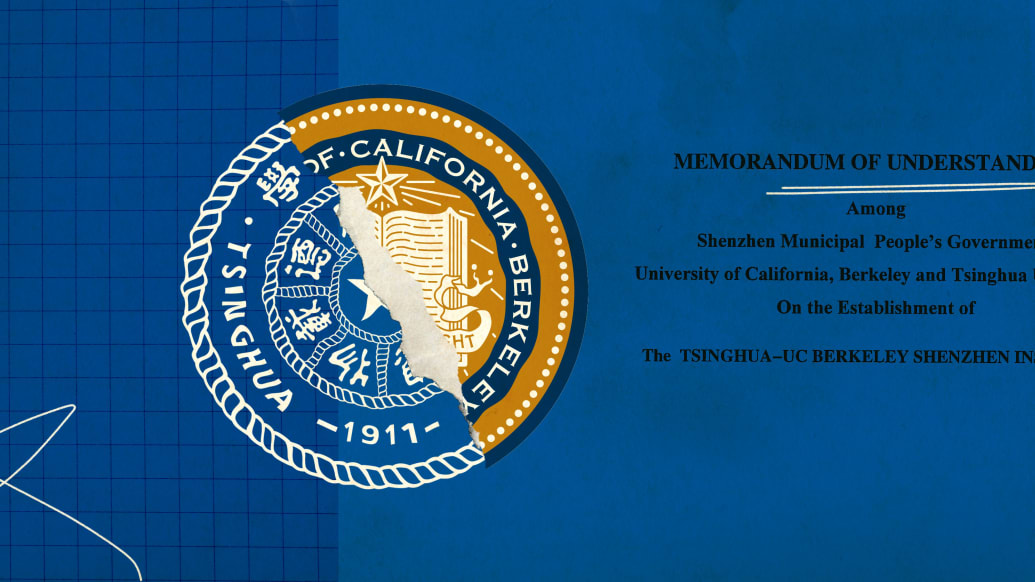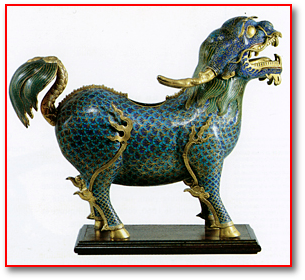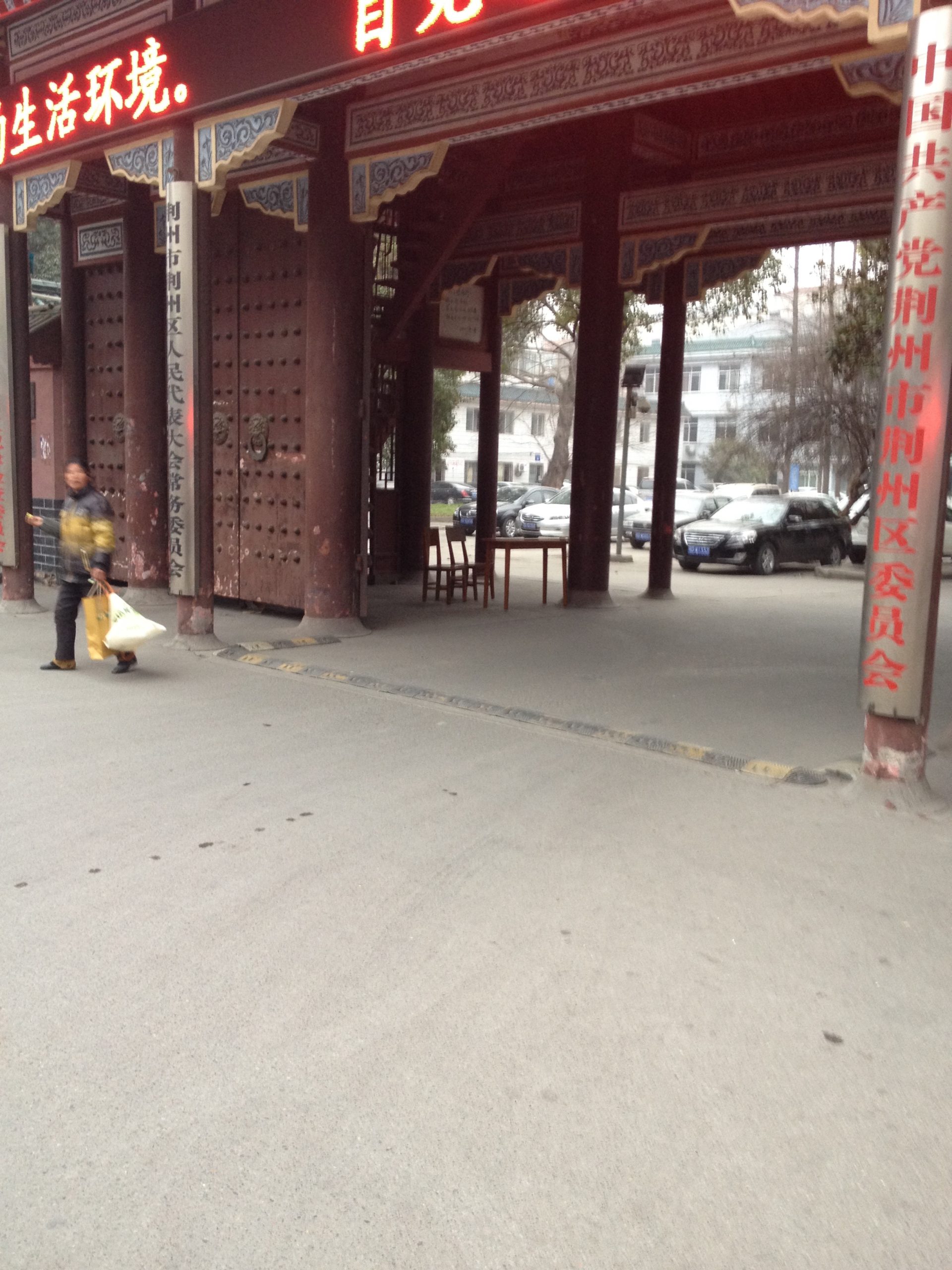From the Daily Beast, a wowser of a scoop – Berkeley’s $220M Mistake Exposed in Massive Deal With China
That much is quite clear. Berkeley can clearly undercut the businessman in selling CCP the rope. Go Golden Bears!
And as with lots of scandals, the flaw may not be in the deal but in the avoidance of reporting. Again and again, whatever happened to avoiding the hint of impropriety? Answer – when you lose civil society or public morality, all that is left is the finely parsed letter of the law.
Berkeley’s $220M Mistake Exposed in Massive Deal With China
U.C. Berkeley repeatedly neglected to disclose its deal with China to the U.S. government.
Updated May. 22, 2023 7:18AM ET Published May. 22, 2023 4:59AM ET
U.C. Berkeley has failed to disclose to the U.S. government massive Chinese state funding for a highly sensitive $240 million joint tech venture in China that has been running for the last eight years.
The Californian university has not registered with the U.S. government that it received huge financial support from the city of Shenzhen for a tech project inside China, which also included partnerships with Chinese companies that have since been sanctioned by the U.S. or accused of complicity in human rights abuses.
The university has failed to declare a $220 million investment from the municipal government of Shenzhen to build a research campus in China. A Berkeley spokesperson told The Daily Beast that the university had yet to declare the investment—announced in 2018—because the campus is still under construction. However, a former Department of Education official who used to help manage the department’s foreign gifts and contracts disclosure program said that investment agreements must be disclosed within six months of signing, not when they are fully executed.
Berkeley admitted that it had also failed to disclose to the U.S. government a $19 million contract in 2016 with Tsinghua University, which is controlled by the Chinese government’s Ministry of Education.
The project’s Chinese backers promised lavish funding, state-of-the-art equipment, and smart Ph.D. students for Berkeley academics researching national security-sensitive technologies, according to contract documents exclusively obtained by The Daily Beast. After the project got underway, Berkeley researchers granted Chinese officials private tours of their cutting-edge U.S. semiconductor facilities and gave “priority commercialization rights” for intellectual properties (IP) they produced to Chinese government-backed funds.
A Berkeley spokesman said that Berkeley only pursued fundamental research through TBSI, meaning that all research projects were eventually publicly published and accessible to all; it did not conduct any proprietary research that exclusively benefited a Chinese entity.
Still, Berkeley’s ties to the Chinese government and sanctioned Chinese companies are sure to raise eyebrows in Washington, where U.S. policymakers are increasingly concerned about the outflow of U.S. technology to China, especially those with military applications.
Under the radar
The project is called the Tsinghua-Berkeley Shenzhen Institute (TBSI), a joint research initiative backed by Berkeley and Tsinghua University, a top science school often called “China’s MIT.” The institute’s website shows that dozens of Chinese companies, including Huawei and others sanctioned by the U.S. government, also supported the institute as industrial advisers.
Through TBSI, Berkeley built an unusually close partnership with the Chinese government. Berkeley’s then-vice-chancellor, Patrick Schlesinger, said in 2015 that the “active participation of the Shenzhen municipal government” is an “unusual feature” of TBSI that sets it apart from other U.S. universities, according to meeting minutes obtained by The Daily Beast.
And yet, Berkeley never disclosed a single cent of the financial support it received from Chinese sources to the federal government for TBSI, possibly not complying with a U.S. disclosure law that requires universities to report large donations from foreign sources.
“If the facts are as Berkeley’s documents seem to assert, this is exactly what universities must report,” Dan Currell, a former deputy under secretary at the Department of Education—who has also worked on policy related to foreign influence in U.S. universities—told The Daily Beast. He later added that “the school isn’t complying with a clearly applicable federal statute.”

Memorandum of Agreement between China and UC Berkeley.
Photo Illustration by Luis G. Rendon/The Daily Beast
To this day, TBSI remains one of the most fully realized examples of U.S.-China research collaboration. In the 2021 fiscal year, the institute hosted 586 students from across the world and pumped out more than 130 science and engineering articles. According to its website, at least 20 Berkeley academics participated in TBSI, working alongside dozens of Chinese and international colleagues. At its peak, the institute hosted 18 laboratories located within three research centers, each focused on a research area relevant to national security: data science and IT; environmental science and new energy production; and public health and precision medicine.
Since the early days of the institute, the Chinese government has occupied three out of 11 seats on the governing board, according to a 2015 Berkeley document. Shenzhen’s then-mayor, Xu Qin, attended the 2014 signing ceremony that launched the institute. Tsinghua University President Chen Jining, another attendee of the signing ceremony, explicitly positioned TBSI as a “university-government-industry partnership.” TBSI also has a Party committee, which in 2018 held a seminar to study a speech by Xi Jinping.
While both Berkeley and Tsinghua contributed faculties to TBSI, the Shenzhen government was responsible for the lion’s share of the program’s funding, promising to provide the “necessary financial support” for the institute, according to 2014 contracting documents obtained by The Daily Beast. In the documents, the government said it would cover a wide range of initial expenses, including “costs of equipment, settlement allowances for newly recruited [principal investigators], as well as the cost of all day-to-day operations (ie. salaries of staff, research subsidies, and student scholarships, etc.)”
As part of the promised financial support, the Shenzhen municipal government first promised in 2014 to pitch in $52 million to support the “initial phase of work” for TBSI, according to a 2015 Berkeley document. More than half of the funding was to finance the purchase of new equipment in China “in consultation with Berkeley faculty… effectively adding facilities and equipment to Berkeley’s research capacity.”
In 2018, the Shenzhen government drastically scaled up their monetary support for the project, agreeing to spend at least $220 million to build a massive research campus in Shenzhen with nearly 1.7 million square feet of classroom space and cutting-edge research facilities. Tsinghua University also chipped in $19 million to fund TBSI.
Berkeley has repeatedly failed to disclose any of the above donations to the Department of Education. According to Currell, U.S. law requires all annual foreign donations exceeding $250,000 to be reported to the department, which in turn publicizes the donations to the general public.
A Berkeley spokesman acknowledged that it failed to report to the U.S. government the $19 million contract with Tsinghua University, but said the rules at the time were less clear.
“Like many universities across the country, UC Berkeley did not have a reporting process in place… in 2016, thus the initial sponsored research agreement was not reported. In 2018, due to national security concerns with China and countries of interest, the Department of Education’s reporting process was recertified and all universities were required to start reporting,” he said.
The $19 million—which was spread over five years from 2016—was thus never reported.
He said Berkeley also failed to report a renewal of the TBSI agreement in January 2022, an omission that he blamed on “an issue in the query pulling the data.” The spokesman said Berkeley corrected the error on Feb. 14, 2023, five days after The Daily Beast first reached out for comment for this story.
On the $220-million investment from the Chinese municipal government, the spokesman initially said: “UC Berkeley does not have any ownership of property at Tsinghua, therefore, is not required to report investments made in, or for, the Tsinghua University campus.” He later admitted that “the provision of a facility and/or equipment could qualify as an in-kind contribution and thus require disclosure.”
Still, Berkeley has not declared the foreign investment because the campus is still under construction, according to the spokesman.
However, according to a 2019 Department of Education guidance, universities must report foreign contracts “at the time that the institution ‘enters into’” them. Currell, the former official, noted that the universities must in practice disclose the foreign investments within six months of the research partnership being signed, not when it is implemented.
“Under the rule, whenever they signed the contract is when they had a reporting obligation within six months,” Currell said.
Perks
The Chinese government funding directly benefited Berkeley faculty members, according to a 2015 Berkeley document obtained by The Daily Beast. The government funding benefited them as researchers, as they used the construction of the new campus as an opportunity to “procure equipment that is not presently available at Berkeley, thus extending [their] research capabilities.” It also benefited them as private individuals, as faculty members earned “consulting fees” for working as research advisors.
After the donations from the Chinese state, TBSI and Berkeley researchers gave access to their government patrons.
Throughout the late 2010s, Berkeley officials frequently gave exclusive tours of the Marvell nanofabrication laboratory, a cutting-edge facility used for semiconductor research, to Chinese delegations connected to TBSI. According to a press release, the Chinese visitors “hoped to learn information” from the lab to “build a better lab abroad”—they did not explicitly say their knowledge would be deployed back in China.
These Chinese delegations to the lab went beyond normal academic exchanges between researchers. Multiple senior Chinese officials, including the vice mayor of Shenzhen and the party secretary of Shenzhen, visited the lab, surveying one of the most advanced semiconductor fabrication facilities in the United States.
There is no evidence that Berkeley or its staff broke U.S. export-control laws by organizing private tours to help Chinese individuals build their own cutting-edge semiconductor labs. However, Robert Shaw, an export-control expert at the Middlebury Institute, said the trip would have had to be organized with the utmost care to ensure that China does not get access to controlled U.S. technology.
“That’s a tough thing, a facility tour like that,” Shaw said. “That’s something that has to be organized very carefully. They need to be extremely careful about what’s visible in there [to the visitors].”
The Chinese government also gained access to some IPs created through research at Berkeley. Shenzhen Waranty Asset Management, a state-owned enterprise controlled by the Chinese government, served as an industrial sponsor for the $19 million grant from Tsinghua University, according to Berkeley’s spokesman. In exchange for the financial support, a Waranty-owned angel investment fund received “priority commercialization rights” for intellectual properties produced by TBSI, according to its LinkedIn page.
The Berkeley spokesman explained that Waranty as the industrial sponsor got “first right to negotiate a license to IP arising under the sponsored research agreement,” an arrangement that he said was the same as those given to other industrial sponsors at American universities. The spokesman said that Waranty did not exercise their licensing rights and the three inventions that came out of the sponsored research were “dedicated to the public.”
The Berkeley spokesman emphasized to The Daily Beast that all TBSI-related research projects were “fundamental research that is openly and publicly published for the benefit of the entire scientific community,” rather than proprietary research that exclusively benefited Chinese entities. He also added that the university does not license IPs to foreign entities that are under sanctions or export control by the U.S. government.
“U.C. Berkeley takes the matter of undue foreign government influence seriously,” he said.

Tsinghua Uni prez shakes hand with a Berkeley dean.
Photo Illustration by Luis G. Rendon/The Daily Beast/Berkeley Press Release
Shaw said that while it is possible for TBSI to work with Chinese government-backed funds in a legally above-board way, the language about priority commercialization rights is a “red flag in an export-control compliance sense.”
“That sort of language sounds like the purpose of the research is IP generation versus the sharing of knowledge globally in an academic context,” he said.
In addition to its funding from the Chinese government, TBSI also courted support from dozens of Chinese companies. Executives from 21 Chinese companies sat on TBSI’s industrial advisory board, supporting the “creation of joint laboratories, collaborative research projects and visiting industry fellows” at TBSI and enjoying access to Berkeley researchers.
Companies later sanctioned or put under export control by the U.S. government—including telecom giants Huawei and ZTE and the drone company DJI—sat on the industrial advisory board; so too did Chinese firms accused of complicity in human rights abuses, such as internet company Tencent and automobile firm BYD.
Some of these companies that participated in TBSI benefited from Berkeley’s innovation. Take for example Shenzhen Waveguider, a Chinese biotech company that built a joint laboratory with TBSI. Waveguider Chairman and CEO Yu Dongfang reportedly said that by leveraging Berkeley’s “best-in-the-world” biosensor technology, Waveguider was able to achieve multiple innovations in the field of diabetes medicine through its partnership with TBSI.
Berkeley’s comments regarding its Chinese corporate sponsors have also been inconsistent. A Berkeley spokesman initially told The Daily Beast that no Berkeley faculty members ever participated in TBSI’s big data research laboratory. The statement contradicted Berkeley’s own websites, which listed three Berkeley academics as participants in the lab. (The spokesman later acknowledged that one of the researchers conducted some work with the big data research lab, but said that the other two left the project in its early stages.)
For the time being, Berkeley appears intent on continuing the TBSI, albeit on a narrower scale; in 2022, Berkeley administrators announced a “phase II” for the institute, committing to support the partnership for another five years.
However, some Berkeley officials may be having second thoughts about its relationship with China. In 2018, Berkeley submitted a complaint to the U.S. Trade of Representatives, saying that Beijing’s tech regulations unduly restrict the university’s ability to license IPs in China.
And even as far back as in 2015, a member of the U.C. Board of Regents expressed reservations about Berkeley’s participation in TBSI.
“Who would decide what research directions to take or what ethical rights they should follow?” Regent Hadi Makarechian
said in 2015 at a board meeting about TBSI. “Because we hear all that stuff that in China, they do all this research that’s not ethical.”





Whoops! Just slipped right past me! …
Berkeley’s $220M Mistake Exposed in Massive Deal With China
U.C. Berkeley repeatedly neglected to disclose its deal with China to the U.S. government.
Yuichiro Kakutani
U.C. Berkeley has failed to disclose to the U.S. government massive Chinese state funding for a highly sensitive $240 million joint tech venture in China that has been running for the last eight years.
The Californian university has not registered with the U.S. government that it received huge financial support from the city of Shenzhen for a tech project inside China, which also included partnerships with Chinese companies that have since been sanctioned by the U.S. or accused of complicity in human rights abuses.
The university has failed to declare a $220 million investment from the municipal government of Shenzhen to build a research campus in China. A Berkeley spokesperson told The Daily Beast that the university had yet to declare the investment—announced in 2018—because the campus is still under construction. However, a former Department of Education official who used to help manage the department’s foreign gifts and contracts disclosure program said that investment agreements must be disclosed within six months of signing, not when they are fully executed.
Berkeley admitted that it had also failed to disclose to the U.S. government a $19 million contract in 2016 with Tsinghua University, which is controlled by the Chinese government’s Ministry of Education.
The project’s Chinese backers promised lavish funding, state-of-the-art equipment, and smart Ph.D. students for Berkeley academics researching national security-sensitive technologies, according to contract documents exclusively obtained by The Daily Beast. After the project got underway, Berkeley researchers granted Chinese officials private tours of their cutting-edge U.S. semiconductor facilities and gave “priority commercialization rights” for intellectual properties (IP) they produced to Chinese government-backed funds.
A Berkeley spokesman said that Berkeley only pursued fundamental research through TBSI, meaning that all research projects were eventually publicly published and accessible to all; it did not conduct any proprietary research that exclusively benefited a Chinese entity.
Still, Berkeley’s ties to the Chinese government and sanctioned Chinese companies are sure to raise eyebrows in Washington, where U.S. policymakers are increasingly concerned about the outflow of U.S. technology to China, especially those with military applications.
Under the radar
The project is called the Tsinghua-Berkeley Shenzhen Institute (TBSI), a joint research initiative backed by Berkeley and Tsinghua University, a top science school often called “China’s MIT.” The institute’s website shows that dozens of Chinese companies, including Huawei and others sanctioned by the U.S. government, also supported the institute as industrial advisers.
Through TBSI, Berkeley built an unusually close partnership with the Chinese government. Berkeley’s then-vice-chancellor, Patrick Schlesinger, said in 2015 that the “active participation of the Shenzhen municipal government” is an “unusual feature” of TBSI that sets it apart from other U.S. universities, according to meeting minutes obtained by The Daily Beast.
And yet, Berkeley never disclosed a single cent of the financial support it received from Chinese sources to the federal government for TBSI, possibly not complying with a U.S. disclosure law that requires universities to report large donations from foreign sources.
“If the facts are as Berkeley’s documents seem to assert, this is exactly what universities must report,” Dan Currell, a former deputy under secretary at the Department of Education—who has also worked on policy related to foreign influence in U.S. universities—told The Daily Beast. He later added that “the school isn’t complying with a clearly applicable federal statute.”
Memorandum of Agreement between China and UC Berkeley.
Photo Illustration by Luis G. Rendon/The Daily Beast
To this day, TBSI remains one of the most fully realized examples of U.S.-China research collaboration. In the 2021 fiscal year, the institute hosted 586 students from across the world and pumped out more than 130 science and engineering articles. According to its website, at least 20 Berkeley academics participated in TBSI, working alongside dozens of Chinese and international colleagues. At its peak, the institute hosted 18 laboratories located within three research centers, each focused on a research area relevant to national security: data science and IT; environmental science and new energy production; and public health and precision medicine.
Since the early days of the institute, the Chinese government has occupied three out of 11 seats on the governing board, according to a 2015 Berkeley document. Shenzhen’s then-mayor, Xu Qin, attended the 2014 signing ceremony that launched the institute. Tsinghua University President Chen Jining, another attendee of the signing ceremony, explicitly positioned TBSI as a “university-government-industry partnership.” TBSI also has a Party committee, which in 2018 held a seminar to study a speech by Xi Jinping.
While both Berkeley and Tsinghua contributed faculties to TBSI, the Shenzhen government was responsible for the lion’s share of the program’s funding, promising to provide the “necessary financial support” for the institute, according to 2014 contracting documents obtained by The Daily Beast. In the documents, the government said it would cover a wide range of initial expenses, including “costs of equipment, settlement allowances for newly recruited [principal investigators], as well as the cost of all day-to-day operations (ie. salaries of staff, research subsidies, and student scholarships, etc.)”
As part of the promised financial support, the Shenzhen municipal government first promised in 2014 to pitch in $52 million to support the “initial phase of work” for TBSI, according to a 2015 Berkeley document. More than half of the funding was to finance the purchase of new equipment in China “in consultation with Berkeley faculty… effectively adding facilities and equipment to Berkeley’s research capacity.”
In 2018, the Shenzhen government drastically scaled up their monetary support for the project, agreeing to spend at least $220 million to build a massive research campus in Shenzhen with nearly 1.7 million square feet of classroom space and cutting-edge research facilities. Tsinghua University also chipped in $19 million to fund TBSI.
Berkeley has repeatedly failed to disclose any of the above donations to the Department of Education. According to Currell, U.S. law requires all annual foreign donations exceeding $250,000 to be reported to the department, which in turn publicizes the donations to the general public.
A Berkeley spokesman acknowledged that it failed to report to the U.S. government the $19 million contract with Tsinghua University, but said the rules at the time were less clear.
“Like many universities across the country, UC Berkeley did not have a reporting process in place… in 2016, thus the initial sponsored research agreement was not reported. In 2018, due to national security concerns with China and countries of interest, the Department of Education’s reporting process was recertified and all universities were required to start reporting,” he said.
The $19 million—which was spread over five years from 2016—was thus never reported.
He said Berkeley also failed to report a renewal of the TBSI agreement in January 2022, an omission that he blamed on “an issue in the query pulling the data.” The spokesman said Berkeley corrected the error on Feb. 14, 2023, five days after The Daily Beast first reached out for comment for this story.
On the $220-million investment from the Chinese municipal government, the spokesman initially said: “UC Berkeley does not have any ownership of property at Tsinghua, therefore, is not required to report investments made in, or for, the Tsinghua University campus.” He later admitted that “the provision of a facility and/or equipment could qualify as an in-kind contribution and thus require disclosure.”
Still, Berkeley has not declared the foreign investment because the campus is still under construction, according to the spokesman.
However, according to a 2019 Department of Education guidance, universities must report foreign contracts “at the time that the institution ‘enters into’” them. Currell, the former official, noted that the universities must in practice disclose the foreign investments within six months of the research partnership being signed, not when it is implemented.
“Under the rule, whenever they signed the contract is when they had a reporting obligation within six months,” Currell said.
Perks
The Chinese government funding directly benefited Berkeley faculty members, according to a 2015 Berkeley document obtained by The Daily Beast. The government funding benefited them as researchers, as they used the construction of the new campus as an opportunity to “procure equipment that is not presently available at Berkeley, thus extending [their] research capabilities.” It also benefited them as private individuals, as faculty members earned “consulting fees” for working as research advisors.
After the donations from the Chinese state, TBSI and Berkeley researchers gave access to their government patrons.
Throughout the late 2010s, Berkeley officials frequently gave exclusive tours of the Marvell nanofabrication laboratory, a cutting-edge facility used for semiconductor research, to Chinese delegations connected to TBSI. According to a press release, the Chinese visitors “hoped to learn information” from the lab to “build a better lab abroad”—they did not explicitly say their knowledge would be deployed back in China.
These Chinese delegations to the lab went beyond normal academic exchanges between researchers. Multiple senior Chinese officials, including the vice mayor of Shenzhen and the party secretary of Shenzhen, visited the lab, surveying one of the most advanced semiconductor fabrication facilities in the United States.
There is no evidence that Berkeley or its staff broke U.S. export-control laws by organizing private tours to help Chinese individuals build their own cutting-edge semiconductor labs. However, Robert Shaw, an export-control expert at the Middlebury Institute, said the trip would have had to be organized with the utmost care to ensure that China does not get access to controlled U.S. technology.
“That’s a tough thing, a facility tour like that,” Shaw said. “That’s something that has to be organized very carefully. They need to be extremely careful about what’s visible in there [to the visitors].”
The Chinese government also gained access to some IPs created through research at Berkeley. Shenzhen Waranty Asset Management, a state-owned enterprise controlled by the Chinese government, served as an industrial sponsor for the $19 million grant from Tsinghua University, according to Berkeley’s spokesman. In exchange for the financial support, a Waranty-owned angel investment fund received “priority commercialization rights” for intellectual properties produced by TBSI, according to its LinkedIn page.
The Berkeley spokesman explained that Waranty as the industrial sponsor got “first right to negotiate a license to IP arising under the sponsored research agreement,” an arrangement that he said was the same as those given to other industrial sponsors at American universities. The spokesman said that Waranty did not exercise their licensing rights and the three inventions that came out of the sponsored research were “dedicated to the public.”
The Berkeley spokesman emphasized to The Daily Beast that all TBSI-related research projects were “fundamental research that is openly and publicly published for the benefit of the entire scientific community,” rather than proprietary research that exclusively benefited Chinese entities. He also added that the university does not license IPs to foreign entities that are under sanctions or export control by the U.S. government.
“U.C. Berkeley takes the matter of undue foreign government influence seriously,” he said.
Tsinghua Uni prez shakes hand with a Berkeley dean.
Photo Illustration by Luis G. Rendon/The Daily Beast/Berkeley Press Release
“That sort of language sounds like the purpose of the research is IP generation versus the sharing of knowledge globally in an academic context,” he said.
In addition to its funding from the Chinese government, TBSI also courted support from dozens of Chinese companies. Executives from 21 Chinese companies sat on TBSI’s industrial advisory board, supporting the “creation of joint laboratories, collaborative research projects and visiting industry fellows” at TBSI and enjoying access to Berkeley researchers.
Companies later sanctioned or put under export control by the U.S. government—including telecom giants Huawei and ZTE and the drone company DJI—sat on the industrial advisory board; so too did Chinese firms accused of complicity in human rights abuses, such as internet company Tencent and automobile firm BYD.
Some of these companies that participated in TBSI benefited from Berkeley’s innovation. Take for example Shenzhen Waveguider, a Chinese biotech company that built a joint laboratory with TBSI. Waveguider Chairman and CEO Yu Dongfang reportedly said that by leveraging Berkeley’s “best-in-the-world” biosensor technology, Waveguider was able to achieve multiple innovations in the field of diabetes medicine through its partnership with TBSI.
Berkeley’s comments regarding its Chinese corporate sponsors have also been inconsistent. A Berkeley spokesman initially told The Daily Beast that no Berkeley faculty members ever participated in TBSI’s big data research laboratory. The statement contradicted Berkeley’s own websites, which listed three Berkeley academics as participants in the lab. (The spokesman later acknowledged that one of the researchers conducted some work with the big data research lab, but said that the other two left the project in its early stages.)
For the time being, Berkeley appears intent on continuing the TBSI, albeit on a narrower scale; in 2022, Berkeley administrators announced a “phase II” for the institute, committing to support the partnership for another five years.
However, some Berkeley officials may be having second thoughts about its relationship with China. In 2018, Berkeley submitted a complaint to the U.S. Trade of Representatives, saying that Beijing’s tech regulations unduly restrict the university’s ability to license IPs in China.
And even as far back as in 2015, a member of the U.C. Board of Regents expressed reservations about Berkeley’s participation in TBSI.